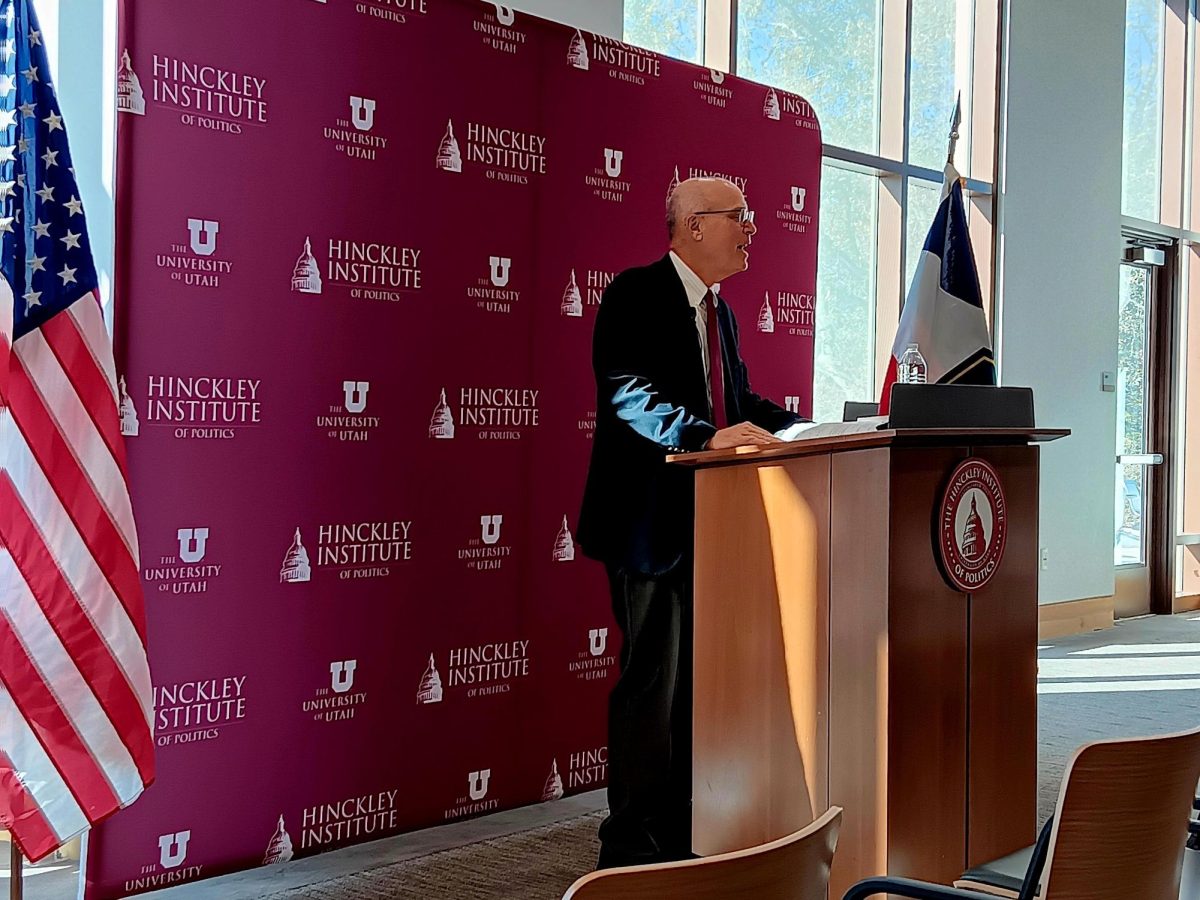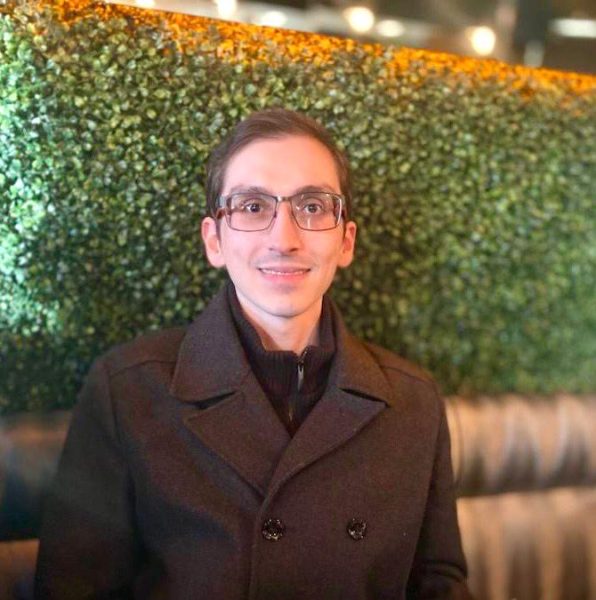Jay Nordlinger, senior editor of the National Review, spoke on politics at college campuses during the Politics on Campus: Yes and No forum last Monday, hosted by the Hinckley Institute of Politics. He argued that a college campus should not be a place for political activism. Rather, it should be a time when students develop their worldview through learning.
“I think these years should be spent learning, soaking in everything, tasting everything you can, building a foundation, reading everything left, right and center, stuffing yourself with knowledge,” Nordlinger said.
Another reason Nordlinger thinks students shouldn’t be so political is that their views may change.
“What you’re absolutely sure of on Monday, you might be less sure of on Tuesday,” he said. He also told the audience of mostly students that they shouldn’t feel the need to share their opinions on hot-button issues when they are unsure where they stand.
“You don’t have to have an opinion on everything; express an opinion on everything. You don’t have to participate; you don’t have to be baited into it,” he said. “You might say, ‘You know, I haven’t really thought about that,’ or ‘I need to study it more, or ‘I don’t know, I’m thinking it over, I don’t have an opinion.'”
“I wish I’d known that more when I was younger. You have the right to remain silent, so to speak,” he added.
A Diverse Media Diet
Nordlinger also suggested working towards a “diverse media diet.” People tend to curate their own “media silos,” he said, rarely venturing off to sources with a different political tilt.
“It takes real discipline, I think, to put fiber in your diet, so to speak, to read some things you may not like, at least initially,” he said, “to read some things that cut across the grain.”
Norlinger also argued that “not everything needs to be soaked in politics.” He said an “apolitical sphere” should allow people to take a break from politics.
“There’s a certain mentality that says everything is political: the clothes you wear, the food you eat, the music you listen to, the slang you use, the friends you make. I really think this is a very tiresome way to live,” he said. He added that we’re living in a “combustible political time” which is putting a strain on friendships.
In an interview with The Daily Utah Chronicle, Nordlinger said he has experienced strained and broken friendships due to politics. He said it can be difficult to “find common ground without sweeping things under the rug.”
“What I hope we can find common ground on is that we support our Constitution and support the value of pluralism. Different kinds of people … living in the same country,” he said.
Freedom of Speech
During the forum, Nordlinger stressed the importance of academic freedom as well as protecting the free speech of people in philosophical and political minorities. But, he noted that professors should not use academic freedom should to inject their political views into the classroom.
“When I was in college, I heard some professors in the sciences seize their lectures to talk about politics in Central America and elsewhere,” he said. “I don’t think this is especially kosher.”
Nordlinger added that intellectual majorities are usually reluctant to grant freedom to minority opinions.
“Majorities can be bullying,” he said. “Majorities can lord it over others. Do you know who favors freedom of speech? Minorities, whoever they are, because majorities are in the saddle, they’re riding high.”
During his interview with the Chronicle, Nordlinger added people often have a confused notion of what freedom of speech grants.
“I think a lot of people think freedom of speech means the right to say what you think without any criticism,” he said. “That’s not freedom of speech. That’s a monopoly on speech.”




James • Nov 21, 2024 at 7:40 am
Nordlinger expresses a deep distrust in young people that I find concerning. For decades this has been a way to dismiss the new political movements, that young people are stupid and naive. In reality, these students are often in the intellectual prime of their lives. Telling students to not share their opinions because they must be wrong because of how young they are is both untrue and a classic method of suppression by older and usually more conservative generations. He himself is demonstrating an inability to change his opinions in response to new information, exactly what he is counseling against.
Nathan • Nov 26, 2024 at 7:51 am
The majority of people, when they are older, recognize the foolishness of many of their views and beliefs when they were young. Unfortunately, lack of knowledge and wisdom in youth also typically is accompanied by above average stridency of opinions.
I think it’s smart to save stridency for a time when you are older (generally more knowledgeable and wiser). I think that is what Nordlinger is trying to say.
James • Dec 5, 2024 at 7:35 am
This is exactly the view that I’m saying is incorrect. The idea that many folks feel they were foolish in college or higher education is very very small. pewresearch.org/politics/2020/08/04/voters-rarely-switch-parties-but-recent-shifts-further-educational-racial-divergence/
The situation you’re proposing is not a real constituency. I don’t see any evidence to suggest young people are more strident in their beliefs despite lack of knowlege. As I stated previously, those currently engaging with higher education are often in the educational prime of their lives. Shouldn’t we take them more seriously?
E. K. Brown • Nov 20, 2024 at 8:48 pm
An exceptional and timely article. It is beautifully written with exciting ideas which are presented to be easily understandable. Thank You.